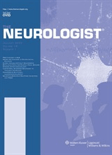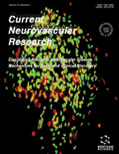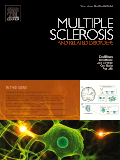
NEUROLOGIST
Scope & Guideline
Exploring the Frontiers of Neurological Science
Introduction
Aims and Scopes
- Cerebrovascular Diseases:
The journal extensively covers topics related to ischemic and hemorrhagic strokes, including risk factors, treatment methods, and rehabilitation strategies, reflecting a commitment to improving outcomes for patients with cerebrovascular conditions. - Neurological Disorders and Conditions:
Research on a variety of neurological disorders, such as multiple sclerosis, Alzheimer's disease, and neuroinfections, is prevalent, indicating a broad scope that aims to address both common and rare conditions. - Innovative Diagnostic Techniques:
The journal emphasizes advancements in diagnostic imaging and biomarkers, including MRI techniques and blood biomarkers, to enhance the accuracy and timeliness of neurological diagnoses. - Therapeutic Interventions:
There is a strong focus on the efficacy of various treatment modalities, including thrombolysis, mechanical thrombectomy, and novel pharmacological therapies, underscoring the journal's role in translating research into clinical practice. - Patient Outcomes and Rehabilitation:
Research on rehabilitation strategies and post-stroke recovery highlights the journal's dedication to improving quality of life for patients through evidence-based rehabilitation practices.
Trending and Emerging
- Impact of COVID-19 on Neurological Health:
A notable increase in studies examining the neurological implications of COVID-19, including its association with strokes and other neurological disorders. This reflects a growing recognition of the pandemic's multifaceted impact on public health. - Neuroinflammation and Stroke:
There is a rising focus on the role of neuroinflammation in stroke pathophysiology, with research exploring inflammatory biomarkers and their implications for prognosis and treatment. This trend underscores the importance of understanding the underlying mechanisms of stroke. - Advancements in Telemedicine and Remote Monitoring:
Emerging studies on the use of telemedicine for stroke care and neurological follow-up reflect a shift towards integrating technology in patient management, especially in the context of improving access to care in rural or underserved populations. - Biomarkers for Stroke Prediction and Recovery:
The journal has seen an increase in research dedicated to identifying novel biomarkers for predicting stroke risk and recovery outcomes, emphasizing the importance of personalized medicine in neurology. - Multidisciplinary Approaches to Neurological Care:
There is a growing trend towards multidisciplinary approaches in managing neurological disorders, integrating insights from various specialties to enhance patient care and outcomes.
Declining or Waning
- Invasive Procedures for Stroke Management:
The frequency of studies exploring traditional invasive procedures for stroke management, such as craniotomies or direct surgical interventions, has decreased. This may indicate a shift towards less invasive methods, such as endovascular techniques, which are gaining preference. - Psychogenic Neurological Disorders:
Research focusing on psychogenic neurological disorders has seen a reduction in recent publications. This may suggest a shift towards more biologically-based understandings of neurological conditions, as well as advancements in diagnostic criteria that differentiate between organic and functional disorders. - Longitudinal Studies on Rare Neurological Conditions:
There appears to be a waning interest in longitudinal studies investigating rare neurological conditions, possibly due to the challenges in recruitment and the need for more immediate clinical applicability in research.
Similar Journals

JAMA Neurology
Leading the Charge in Neurological Research and TreatmentJAMA Neurology is a leading peer-reviewed journal published by the American Medical Association, focused on advancing the understanding and treatment of neurological disorders. With an impressive impact factor and ranked in the 99th percentile among clinical neurology journals, this publication is recognized as Q1 in its category for 2023, highlighting its significance in the field. Since its inception, the journal has provided a platform for high-quality research, clinical trials, and reviews that inform both clinicians and researchers. Operating from its headquarters in Chicago, Illinois, JAMA Neurology offers rich insights into the latest advancements in neurology, featuring articles that span a wide range of topics including neurodegenerative diseases, stroke, epilepsy, and neurocritical care. Researchers and professionals are encouraged to access the journal’s content freely, as it employs open access options to promote the dissemination of critical knowledge. As a critical resource in the field of neurology, JAMA Neurology is essential for anyone involved in this dynamic and rapidly evolving specialty.

EUROPEAN JOURNAL OF NEUROLOGY
Exploring Breakthroughs in Clinical Neurology.EUROPEAN JOURNAL OF NEUROLOGY, published by WILEY, stands as a leading platform for the dissemination of innovative research and clinical developments in the field of neurology. With a robust impact factor and prestigious rankings, including being positioned as Q1 in both Neurology and Clinical Neurology categories, the journal plays a pivotal role in shaping neurological sciences from 1994 to 2024. Its Scopus rank highlights its importance, being in the 88th percentile for clinical neurology and 87th percentile for neuroscience. Located in the United Kingdom, the journal thrives as a vital resource for researchers, clinicians, and students dedicated to improving neurological health outcomes. Although it does not offer Open Access, its subscription-based model ensures high-quality peer-reviewed articles are accessible to a global audience, reflecting the continuous pursuit of excellence in neurological research and patient care.

EUROPEAN NEUROLOGY
Pioneering Research for a Healthier Neurological FutureEuropean Neurology, published by KARGER, is a distinguished journal in the field of neurology, catering to both clinical and neuroscience specialties. Since its inception in 1897 and continuing through 2024, the journal has been a vital platform for disseminating significant research findings and insights in neurology. With an ISSN of 0014-3022 and E-ISSN of 1421-9913, it ranks in the Q3 quartile in both clinical neurology and general neurology categories, reflecting its commitment to scholarly excellence while holding the 175th rank in clinical medicine and the 93rd in neuroscience, according to Scopus metrics. European Neurology facilitates a deeper understanding of neurological disorders and treatments, appealing to a diverse readership that includes researchers, clinicians, and students alike. Despite not currently offering open access, the journal’s rigorous peer-review process ensures that only high-quality research reaches its audience, making it an essential resource for those looking to stay informed in the rapidly evolving field of neurology.

CURRENT NEUROVASCULAR RESEARCH
Innovating Understanding in Neurovascular DynamicsCURRENT NEUROVASCULAR RESEARCH is an esteemed peer-reviewed journal published by Bentham Science Publishers Ltd, focusing on the intricate relationships within the realms of cellular and molecular neuroscience, developmental neuroscience, and neurology. With an ISSN of 1567-2026 and an E-ISSN of 1875-5739, this journal has been contributing to the field since its inception in 2004 and is poised to continue through 2024. As a resource dedicated to disseminating innovative research findings, CURRENT NEUROVASCULAR RESEARCH is recognized within Category Quartiles as Q3 in multiple fields, including Neurology (clinical) and Developmental Neuroscience. Although classified in the Q4 category for Cellular and Molecular Neuroscience, the journal maintains a crucial role in fostering academic discourse and advancing our understanding of neurovascular dynamics. Researchers, professionals, and students will find valuable insights in this journal, offering access to a diverse range of studies that highlight cutting-edge developments in the field.

ACTA NEUROLOGICA BELGICA
Elevating Clinical Practice Through Rigorous Research.ACTA NEUROLOGICA BELGICA is a leading academic journal published by Springer Heidelberg, dedicated to advancing the field of neurology and medicine. With an ISSN of 0300-9009 and E-ISSN 2240-2993, this journal has been a vital resource since its inception, contributing significantly to neurological research and clinical practice. It holds a respectable impact factor with categories spanning from Q2 in Medicine (miscellaneous) to Q3 in Neurology (clinical) as of 2023, indicating its prominence in the scientific community. The journal's extensive coverage since 1959 enhances its historical relevance, while its ongoing publication until 2024 ensures the latest developments are readily accessible. Researchers and practitioners can benefit from its rigorous peer-reviewed articles, which are crucial for staying current in this rapidly evolving discipline. As a scholarly platform, ACTA NEUROLOGICA BELGICA plays a pivotal role in disseminating knowledge and fostering innovation in neurology, making it a must-read for professionals, students, and anyone involved in the field.

Neurohospitalist
Advancing the Frontiers of Neurological CareNeurohospitalist is a premier journal dedicated to advancing the field of clinical neurology, published by SAGE Publications Ltd. With an ISSN of 1941-8744 and an E-ISSN of 1941-8752, this journal caters to the growing demand for high-quality research and discussions around neurological emergencies and hospital-based care. Established in 2011 and slated to continue through 2024, Neurohospitalist aims to foster comprehensive and impactful studies that contribute to clinical practice and patient outcomes in neurology. It holds a respectable Q3 categorization in Neurology (clinical) for 2023, indicating its valuable contributions amidst a competitive landscape. Although it does not offer open access options, researchers and professionals can access essential findings that push the boundaries of contemporary neurology. By bringing together innovative research, expert reviews, and case studies, Neurohospitalist serves as a vital resource for those engaged in the dynamics of neurological care, encouraging the exchange of knowledge among clinicians, researchers, and students alike.

ACTA NEUROLOGICA SCANDINAVICA
Exploring the Frontiers of NeuroscienceACTA NEUROLOGICA SCANDINAVICA is a prestigious journal published by Wiley that has significantly contributed to the field of neurology and neuroscience since its inception in 1961. With a broad scope encompassing clinical and experimental research, this journal is esteemed for its rigorous peer-review process and high-quality publications. Located in the United Kingdom, it is recognized in the 2023 category quartiles as Q1 in Medicine (miscellaneous) and Q2 in both Neurology and Clinical Neurology, indicating its strong influence and relevance within the medical community. With an H-index demonstrating consistent citation impact, ACTA NEUROLOGICA SCANDINAVICA holds a Scopus rank of #86 out of 400 in Clinical Neurology, reflecting its contribution to advancing current knowledge and practice. Researchers, professionals, and students alike will find in this journal a valuable resource for the latest findings, discussions, and developments in understanding neurological disorders and treatments, furthering educational and clinical endeavors alike.

Progress in Neurology and Psychiatry
Illuminating the complexities of neurological and psychiatric disorders.Progress in Neurology and Psychiatry is a pivotal journal published by John Wiley & Sons Ltd, dedicated to advancing the fields of neurology and psychiatry. With a robust history dating back to its establishment, this esteemed journal holds a consistent Q3 ranking in 2023 across several categories including Neurology, Clinical Neurology, Psychiatry, and Mental Health, signifying its significant contribution to the scientific community. This journal serves as a vital source of knowledge and insight, publishing original research, reviews, and case studies that explore the intricacies of neurological and psychiatric disorders. Although it does not offer open access, the journal remains accessible to a wide audience through institutional subscriptions. By fostering a platform for scholarly discourse, Progress in Neurology and Psychiatry aims to bridge the gap between research and practice, ultimately enhancing the quality of care for individuals with neurological and psychiatric conditions. Researchers, clinicians, and students are encouraged to engage with the journal's comprehensive content to stay informed of the latest developments and emerging trends in these critical fields of medicine.

CEREBROVASCULAR DISEASES
Fostering breakthroughs in cerebrovascular disease management.CEREBROVASCULAR DISEASES is a prestigious journal published by KARGER that focuses on the critical field of cerebrovascular health, encompassing research and advancements in cardiology and neurology. With a strong emphasis on high-quality, peer-reviewed publications, the journal has established itself as an essential resource since its inception in 1987, contributing to the understanding and management of cerebrovascular disorders. It holds a commendable Q2 ranking across various categories, including Cardiology and Cardiovascular Medicine, which underscores its influence within the research community. The journal is especially significant for professionals and researchers interested in the intersection of neurological and cardiovascular health, facilitating knowledge sharing and innovative research. Although it does not operate under an Open Access model, the journal is well-regarded for its rigorous selection criteria and impactful findings. By continuing to publish cutting-edge research, CEREBROVASCULAR DISEASES aims to foster advancements in treatment and prevention strategies for cerebrovascular diseases, thereby contributing to improved patient outcomes worldwide.

Multiple Sclerosis and Related Disorders
Elevating clinical practices through high-impact research.Multiple Sclerosis and Related Disorders, published by Elsevier Science Ltd, is a leading journal that serves as a vital resource in the field of neurology, particularly focused on multiple sclerosis and its associated conditions. This esteemed journal, which holds a Q1 ranking in Medicine (miscellaneous) and Q2 ranking in both Neurology and Clinical Neurology, delivers high-impact research findings and clinical insights crucial for advancing the understanding and management of multiple sclerosis. With an ISSN of 2211-0348 and an E-ISSN of 2211-0356, it provides valuable content from 2012 to 2024 aimed at researchers, healthcare professionals, and students dedicated to improving patient outcomes and fostering innovative strategies in treatment. Additionally, the journal's presence in the Scopus rankings highlights its relevance and influence in the academic community, ranking 121 out of 400 in Clinical Neurology and 59 out of 192 in Neuroscience. This comprehensive platform encourages the dissemination of cutting-edge knowledge and clinical practices, making it an essential tool for those committed to the field of neurology and related research.